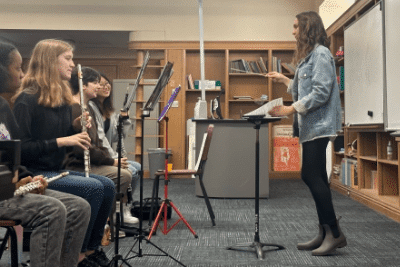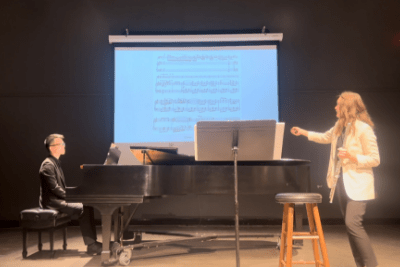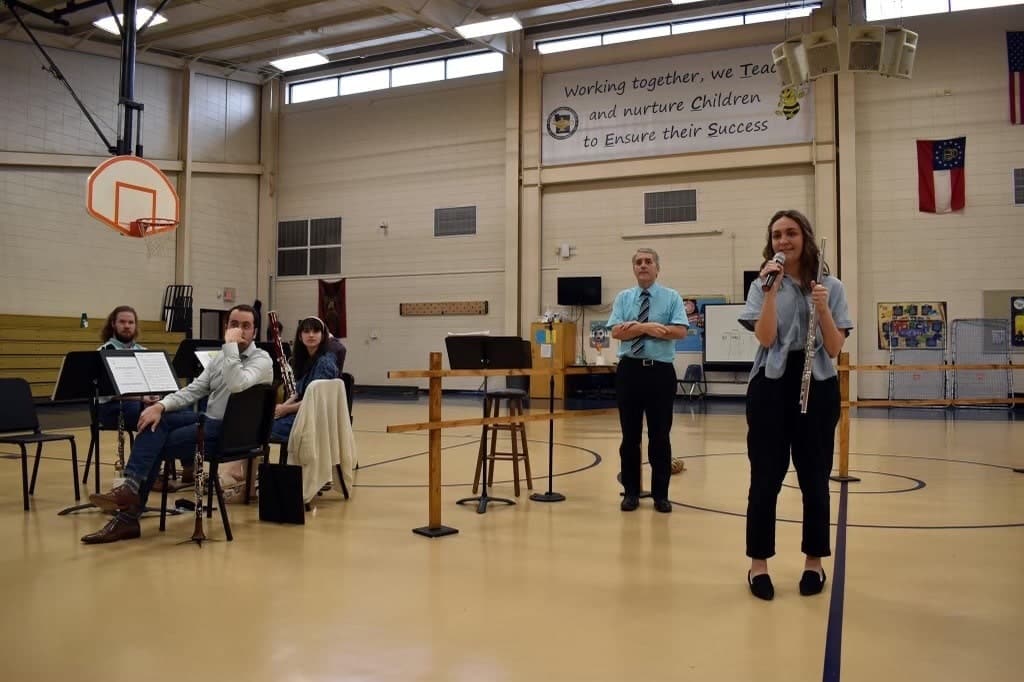I use the lesson as a dedicated time to hold each student accountable to the goals we collectively set regarding their artistic and professional pursuits at the beginning of each semester. In this process, I also hold the development of fundamentals, individuality, patience, perseverance, self-reflection, consistency, and most of all, creativity, at the forefront of my teaching. All students are expected to come to their lessons fully prepared with the materials they were previously assigned. Regardless of major, I also have all students work through similar tone, technique, and etude books I consider vital towards building the basic fundamentals of flute playing. These include Trevor Wye’s Tone Practice Book; Marcel Moyse’s De La Sonorite, 24 Little Melodic Etudes, Tone Development Through Interpretation, and Daily Exercises; Taffanel and Gaubert’s 17 Daily Exercises; Ernesto Kohler’s Romantic Etudes; Sigfrid Karg-Elert’s Caprices; Joachim Andersen’s op. 30; and Nicole Chamberlain and Mary Matthew’s Beatboxing and Beyond. While students are all held to these standards, I do vary the assigned solo repertoire according to their individual needs and goals.
I value empowering students towards making their own discoveries, asking their own questions, and crafting their own interpretations. As such, I treat the applied lesson environment as an experiment in which both myself and the student work together to find solutions. This is tangibly done in a number of ways, uniquely suited towards each student’s background, experience, and learning style. For example, when students are having trouble with an assignment, we explore a variety of ways in which we can approach the problem. Whether this means finding other examples that employ similar techniques, composing our own exercises, using an analogy or a visual aid, or using alternative rhythms and articulations, we find a creative solution that resonates with the student. This teaches the student how to identify apply and approach problems, and how to apply past solutions we discovered in lessons in their individual practice time.
I consider experience to be one of the best teachers, and as such, encourage my students to participate in numerous outside activities including competitions, attending conferences, and taking auditions. I do my best to inform them of opportunities as they arise and mentor them through the process, whether it yield desirable or non-desirable results. We reflect together on how the experience contributed to their growth and goals.
I know that not all students I teach will end up pursuing music professionally. However, it is my goal that the skills they learn in applied lessons such as organization, time management, public speaking, creativity, and confidence will transfer to their chosen career path. Ultimately, I strive to help all students enjoy and be enthusiastic about music for the duration of their lives.





